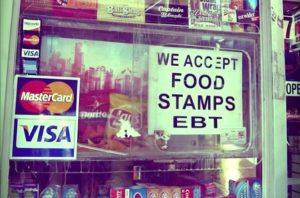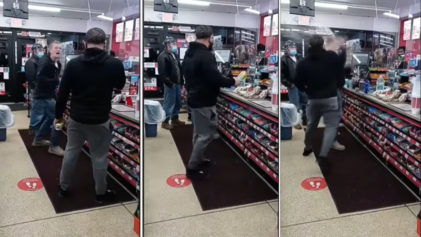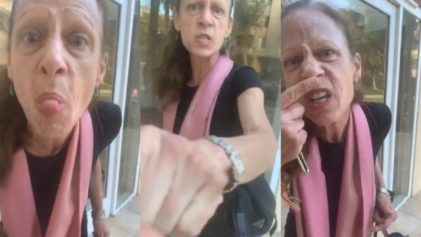
It is a claim rooted in racism, in a land with a visceral contempt for the poor—even as the savagery of American capitalism continues to send more families of all races below the poverty line.
As writer Bryce Covert noted in a piece this week in The Nation, the latest “outrage” was media stories blaring about poor people using food stamps to buy Valentine’s Day candy for loved ones.
Covert says the reason America feels like it can dictate what poor people buy with their government benefits is because they’re poor, presumed to be bad with money and living off taxpayer-provided benefits.
“When we give people assistance through the home-mortgage interest deduction, we don’t feel entitled to tell them what house to buy or what neighborhood to live in; when we subsidize a college education through student loans, we don’t tell students what school to go to or what to major in,” Covert writes. “When we tax capital gains income at a lower rate than income made from labor, we certainly don’t tell those stock pickers what to do with the extra cash.”
Covert attributes the difference to the fact that benefits like mortgage deductions, Medicare and student loans are hidden or submerged, while food stamps are right out there in the open, in the form of a card that has to be handed over to the grocery store clerk.
There’s an additional reason that Covert seems not have considered: racism.
Americans have been trained by white politicians and the mainstream media for decades—starting with President Reagan in the 1980s—to think of Black people when they hear the words food stamps or welfare.
Numerous studies have shown that Americans oppose programs and legislation when they think it will primarily benefit Black people. That was a big part of the white opposition to Obamacare—fueled by the rants of right-wing politicians.
The narrative of the Black mother using food stamps to buy crab legs and steak persists, despite the reality of the food stamp population. According to data from 2013, 40.2 percent of the recipients of the Supplemental Nutrition Assistance Program (SNAP) were white, while 25.7 percent were Black, 10.3 percent were Hispanic and 2.1 percent were Asian. That means the true face of food stamps in America is white.
The falseness of mainstream narrative is damaging because it affects how willing politicians and the public are to provide assistance for Americans who need it. And based on a survey conducted in 2013 for the Associated Press, a huge majority of Americans at some point in their lives are “in need.” The study found that four out of five U.S. adults struggle with joblessness, near-poverty or reliance on welfare for at least part of their lives—demonstrating how far the reality of American life is from the popular narrative that describes this as the land of opportunity.
During the recession a few years ago, numerous stories were sprinkled throughout the media on politicians, celebrities and others taking the food stamp challenge to show how difficult it was to feed a family on the average benefit amount, which was a little over $4 a day. But still the narrative persists of these food stamp recipients inappropriately lavishing their families with the food of the wealthy.
Gloria Dickerson, who runs a program in Drew, Miss., one of the poorest communities in the country, said she has never understood the American impulse to punish the poor.
“People start complaining about the poor, saying when they get their money they buy steak for dinner,” she told Atlanta Blackstar. “We know that’s not really true, but I’m thinking, ‘Well, what do you them to buy, just bread? Don’t you want a steak now and then?’ Just because you’re poor doesn’t mean you don’t want some pleasure in life. Poor people want to be joyful too. They gotta have some pleasure. I want pleasure. You want pleasure. Everybody wants pleasure.”
Dickerson grew up poor and needy in Drew in the segregated 1950s and 60s and went on to accumulate university degrees and eventually rise to the position of comptroller of the Kellogg Foundation. Now 61, she came back to start a program called We2gether Creating Change, where she spends much of her own money to provide academic enrichment and extracurricular enrichment to the children of Sunflower County, in the heart of the Mississippi Delta, a place where jobs and resources are extremely scarce.
Dickerson even started a food pantry when she realized families didn’t have enough to eat.
“Why do you think it’s okay to take everything from them because they’re poor?” she said. “I don’t understand that thinking. I guess because I grew up poor and went to bed hungry. I wanted for stuff. That’s human nature. What you see around, what you see on TV, all that culture around you, you want some of it. Why would you expect a human being not to want that? They want stuff just like you. They’re human beings just like you.”


